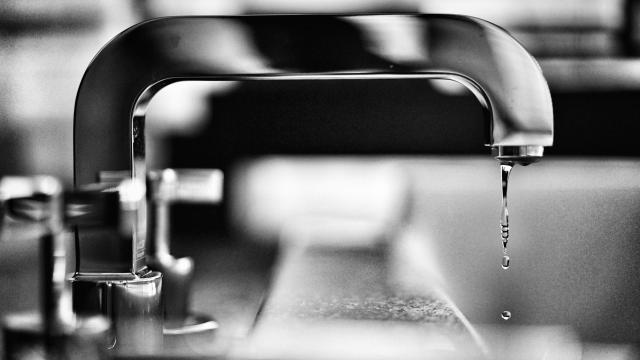We told you to rinse your recyclables. “But what about the wasted water?” you asked. So we asked some scientists. The short answer is, a quick rinse is usually worth it. The long answer is also pretty interesting!
Photo: pan xiaozhen
How much to rinse
Recyclables are all washed at the centre. Rinsing is mostly about keeping vermin out of the system, says Jason Hale, VP of communications at the non-profit Recycling Partnership.
So you only need to rinse them enough that they aren’t magnets for rats and ants. Remember that recyclables will sit in a bin, then a truck, then a pile at the recycling facility. (If they will also sit in an open container in your house, you might also rinse them enough to reduce the smell.)
If your local recycling system collects paper and containers in the same bin, rinsing also keeps that paper recyclable. Pasta sauce oozing out of the jar and onto newspaper can make that newspaper un-recyclable, says Todd Lawrence, Executive Director of the non-profit Urban Green Lab. “This is the reason China just stopped buying tons of US recyclables, because of excess contamination.”
“I’ve had local residents who proudly told me that they ran their recyclables through the dishwasher,” says Hale. That, he says, is unnecessary. He recommends just “the quickest of rinses, or if you’re in an area with a water shortage, just a shake and a wipe“. (The energy spent on the paper towel is less than that spent on the container.)
[referenced url=”https://www.lifehacker.com.au/2018/04/please-rinse-your-recyclables/” thumb=”https://i.kinja-img.com/gawker-media/image/upload/t_ku-large/p2ynewxj40lzfklruwfg.jpg” title=”Rinse Your Recyclables, People!” excerpt=”Can you leave your recyclables dirty? A little, yes. But don’t leave them filthy, a recycling professional tells MEL Magazine. While recycling plants eventually wash all the materials they recycle, a lot of it sits around first. Excess food waste can attract pests and make it more expensive to recycle things. So if you’re throwing filthy containers into the recycling bin, you might do more harm than if you just threw them in the trash.”]
This also means you don’t need to rinse a container that’s already fairly clean, and you don’t need to use soap. Martin Vogt, president of recycling plant EFS-Plastics, recommends rinsing recyclables with dirty dishwater after you clean a sink full of dishes.
Of course, some containers have more stuck-on food. That’s fine, says Sam Silver, Education & Outreach Coordinator at Sims Municipal Recycling. “If there’s still some peanut butter stuck to the bottom of that glass jar – which there usually is – I don’t recommend wasting water worrying about it.”
If you really want to optimise, separate lids and containers when they’re two different materials. “Material types should alway be separated when possible,” says Silver. “So plastic caps can stay on plastic packages, but it’s helpful to keep metal lids off glass jars.”
Environmental impact
Recycling containers saves a lot of energy: Recycling an aluminium can saves 95 per cent of the energy used to make a new one. But how much of that energy is wasted by the rinse? Barely any.
“Since I’m both an environmental scientist and a lazy person, I’ve actually done the maths on this before,” says Jason Goodman, associate professor of physics and environmental science at Wheaton College Massachusetts. “I found that recycling saves far more energy than the cost of washing the containers.”
You can see Goodman’s maths, and his sources, in this spreadsheet. He used EPA estimates for energy savings, and assumed that a rinse would use a full container’s worth of hot water. Even with this generous estimate, rinsing only uses up two to eight per cent of the energy saved by recycling.
Goodman’s test ignores several factors, such as the local water supply and the benefit of reducing landfill space. “But if your major concern is fossil fuels and climate change, it’s an open-and-shut case,” he says. Most of that energy comes from heating the water, so use cold water.
“The best way to reduce the environmental impact of single-use plastics would be to get rid of them altogether,” says Greer Ryan, renewable energy and research specialist at the Center for Biological Diversity. But recycling plastic also keeps it out of waterways, she says. “That’s an important way to protect wildlife and the environment.”
So don’t give your recyclables a bubble bath, but don’t worry that you’re undoing all your good work by giving a reasonable rinse. You’re making the world a little less filthy.

Comments